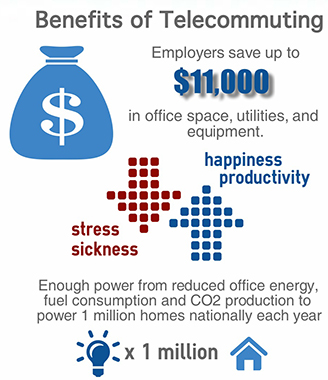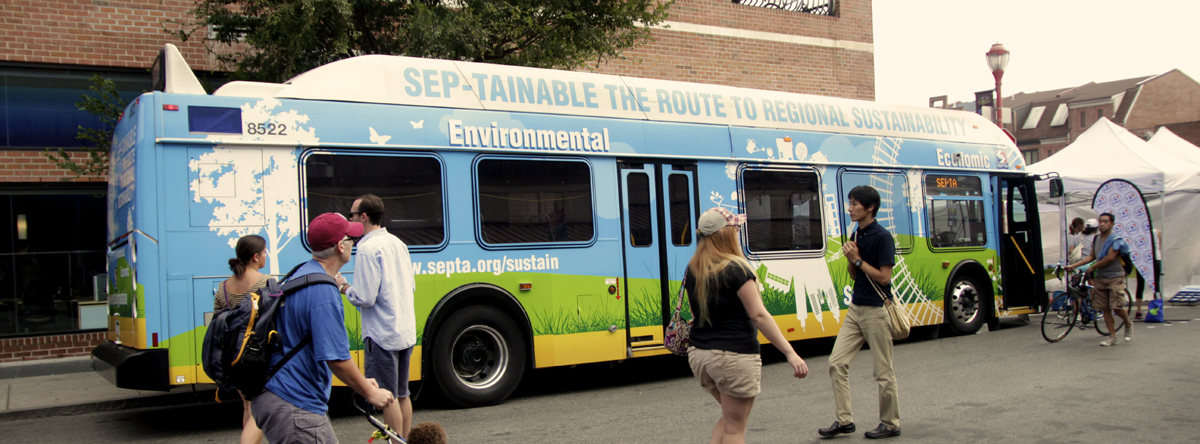Alternative Work Arrangement
You can’t control Philly traffic, but you can adapt by changing the times and places people work
The average Philadelphian loses 125 hours every year sitting in traffic and $2301 in lost fuel and time. Many companies are seeing the benefits of changing up traditional work hours by offering things like flextime, compressed work weeks, and telecommuting. These are benefits that not only boost productivity, but also keep workers happy and engaged. By helping employees avoid the worst traffic times, employers can help reduce congestion and improve air quality; and reduce their employees’ stress on the way to and from work.
Clean Air Council offers free consulting to help create and implement the following alternative work arrangements:
Flextime/Compressed Work Week: Change When Your Employees Work

Flextime
Flextime gives employees some freedom to choose their own work hours. Staff works the same number of hours but can modify when their day starts and stops. Companies can set a range of hours, like between 6:30 am and 6:30 pm, in which they recognize as typical work hours. They can also set a core number of hours where they want staff in the office. Flextime helps avoid rush hour traffic and makes it easier for people to consider options like rideshares and public transit.
Compressed work weeks
A compressed work week gives the option of working their required number of hours in fewer days, meaning longer days in the office, but fewer days you have to come in. This knocks out entire days of commuting. These are some of the most common schedules:
4/40 – 40 hours of work in 4 days
9/80 – 80 hours of work in 9 days
Telecommuting – Change Where Your Employees Work
Telecommuting or teleworking lets employees work remotely in places outside the office, like from home, at least part time. This arrangement might not be for everyone, but if it fits, it can be a great benefit. It can cut down on a company’s overhead expenses and eliminates the commute altogether. Telecommuting will take a different shape based on a company’s specific needs.
Clean Air Council offers you cost-free assistance and individual attention to help you do things like:
- Assess whether telecommuting is right for you and who should do it
- Design company-specific telecommuting policies
- Training and education on site for managers and staff
- Evaluation and iteration of telecommuting programs
If you would like more information on alternative work arrangements, please contact Will Fraser, Transportation Outreach Coordinator, by calling 215-567-4004 ext. 123 or emailing wfraser@cleanair.org.


